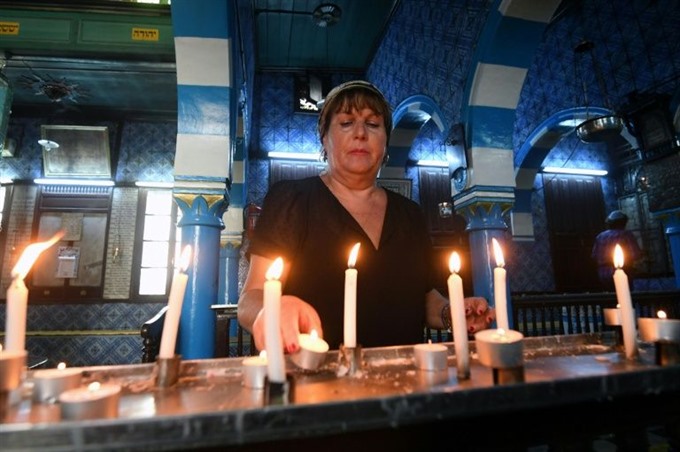 Life & Style
Life & Style

Tunisia — Tunisia plans to seek UNESCO World Heritage status for the island of Djerba, site of Africa’s oldest synagogue and an annual Jewish pilgrimage, its culture minister said on Sunday.
 |
| Janin Gharbi, a Tunisian Jew, at the Ghriba synagogue on the resort island of Djerba on May 14, 2017. — AFP Photo |
DJERBA, Tunisia — Tunisia plans to seek UNESCO World Heritage status for the island of Djerba, site of Africa’s oldest synagogue and an annual Jewish pilgrimage, its culture minister said on Sunday.
Speaking on the last day of the pilgrimage to the Ghriba synagogue, Mohamed Zine El-Abidine said the island was important for its "cultural and religious uniqueness".
He said the application to add Djerba to the World Heritage List would highlight the rich religious heritage of the island, which is home to centuries-old mosques, churches and synagogues.
He did not give a specific time frame for the application.
The cultural agency of the United Nations already lists eight sites in the North African country, including the old cities of Tunis and Sousse and the city of Carthage, once the capital of the Mediterranean-wide Phoenician empire.
Some 3,000 pilgrims attended this year’s Jewish pilgrimage to the island, which ended Sunday under tight security following a string of jihadist attacks in Tunisia.
"There has been a real increase compared to the past two years," Tourism Minister Selma Elloumi said.
"It is an important sign for the start of the tourist season," she added.
Believed to have been founded in 586 BC by Jews fleeing the destruction of the Temple of Solomon in Jerusalem, the Ghriba synagogue has long been a destination for pilgrims, especially for Jews of Tunisian descent.
Around 1,500 Jews live in Tunisia today, down from an estimated 100,000 before the country won independence from France in 1956.
Many of today’s pilgrims came from Europe, the United States and Israel.
Prime Minister Youssef Chahed was in Ghriba on Sunday to deliver what he called "a double message".
"Firstly... Tunisia is a country several thousand years old, with a deep-rooted history of openness to all religions," he said.
Secondly, he said, "security has come back to Tunisia".
According to Elloumi, there has been a 34 per cent rise in tourist arrivals from Europe over the past year. — AFP




